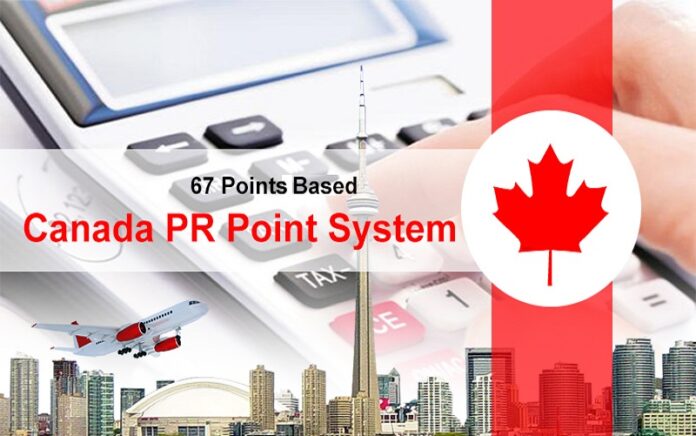Canada’s points-based immigration system, known as Express Entry, is a popular and efficient pathway for skilled workers to gain permanent residency. Here’s a detailed guide to understanding how it works:
1. Overview of Express Entry
Express Entry is an online system used by the Canadian government to manage applications for permanent residence from skilled workers. It includes three main programs:
- Federal Skilled Worker Program (FSWP)
- Federal Skilled Trades Program (FSTP)
- Canadian Experience Class (CEC)
2. Eligibility Requirements
To be eligible for Express Entry, you must meet the requirements of one of the above programs. Key factors include:
- Work Experience: Minimum one year of skilled work experience.
- Education: A Canadian diploma or degree, or an Educational Credential Assessment (ECA) for foreign qualifications.
- Language Proficiency: Proficiency in English or French, proven through standardized tests like IELTS or TEF.
- Proof of Funds: Sufficient funds to support yourself and your family in Canada, unless you are currently able to legally work in Canada or have a valid job offer.
3. Creating an Express Entry Profile
The first step is to create an online Express Entry profile. You’ll need to provide details about your:
- Age
- Education
- Work experience
- Language skills
- Job offer (if applicable)
- Adaptability factors (e.g., a relative in Canada)
4. Comprehensive Ranking System (CRS)
Your profile will be scored using the Comprehensive Ranking System (CRS). The CRS awards points based on:
- Core/Human Capital Factors: Age, education, language skills, work experience.
Skill Transferability Factors: Education and work experience in conjunction with language skills. - Additional Factors: A valid job offer, provincial nomination, or study experience in Canada.
5. CRS Points Breakdown
- Age: Up to 110 points (if applying with a spouse) or 100 points (if applying alone).
- Education: Up to 150 points.
- Language Skills: Up to 160 points.
- Work Experience: Up to 80 points for foreign work experience; up to 70 points for
- Canadian work experience.
- Additional Points: Up to 600 points for a provincial nomination, 50-200 points for a job
- offer, 30 points for Canadian education credentials, etc.
6. Improving Your CRS Score
- Enhance Language Skills: Higher language test scores can significantly increase your CRS points.
- Gain More Work Experience: Additional work experience can boost your score.
- Education: Obtain further education or improve the assessment of your current qualifications.
- Provincial Nomination: Apply to provincial nominee programs (PNPs) for an extra 600 points.
- Job Offer: Secure a valid job offer from a Canadian employer.
7. Receiving an Invitation to Apply (ITA)
Candidates with the highest CRS scores are periodically invited to apply for permanent residency. The government holds regular draws, and if your score meets or exceeds the cut-off, you’ll receive an ITA.
8. Applying for Permanent Residency
Once you receive an ITA, you have 60 days to submit a complete application for permanent residency. This includes:
- Medical Examination
- Police Certificates
- Proof of Funds
- Supporting Documents: Education credentials, work experience letters, language test results, etc.
9. Processing Time
The processing time for Express Entry applications is typically around six months from the date of submission. During this time, your application will be reviewed, and you may be asked for additional information.
10. After Approval
If your application is approved, you will receive a Confirmation of Permanent Residence (COPR) and a permanent resident visa. You can then move to Canada and begin your new life as a permanent resident.
Tips for Success
- Stay Informed: Regularly check for updates on immigration policies and CRS score trends.
- Be Thorough: Ensure your profile and application are complete and accurate.
- Seek Help: Consider consulting with an immigration lawyer or consultant if needed.
Canada’s points-based immigration system offers a transparent and fair way for skilled workers to achieve permanent residency. By understanding the process and meeting the requirements, you can maximize your chances of success and start a new chapter in Canada.









